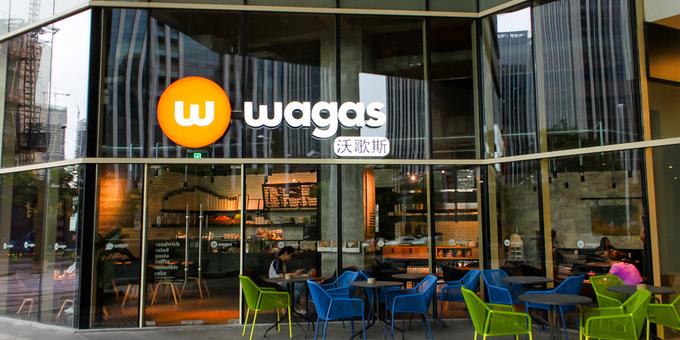The new Sandwich Market in China is “Yummy”

Fast food restaurant company Subway has recently entered into a new master franchise agreement with Shanghai Fu-Rui-Shi Corporate Development (FRS) to enhance its presence in Mainland China. This agreement is deemed to be Subway’s largest master franchise agreement and one of the most significant in the global quick-service restaurant (QSR) industry. The financing for this agreement has been provided by a consortium of private investors, including Asia Investment Capital (AIC).
The leader : Subway in China
Subway, the largest sandwich chain in the world, ventured into the Chinese market during a period of rapid growth in the country’s fast food industry. However, the company quickly discovered that establishing a strong presence in China would not be an easy feat. The Chinese population was unfamiliar with the American style of ordering and consuming sandwiches, while also being conscious of the increasing concerns surrounding obesity due to high-calorie Western fast foods. To introduce the concept of sandwiches to the Chinese market, Subway had to provide printed signs explaining the ordering process. Additionally, Subway encountered significant challenges in establishing and managing its franchises in China.
Cost-Effective Agency
KPI and Results focused. We are the most visible Marketing Agency for China. Not because of huge spending but because of our SMART Strategies. Let us help you with: E-Commerce, Search Engine Optimization, Advertising, Weibo, WeChat, WeChat Store & PR.
Subway communicate a lot of health In China

This case study delves into Subway’s entry and expansion strategies in China, shedding light on the specific issues faced by the fast food industry in the country. It offers an opportunity to discuss the strategies that American and other Western fast food chains should adopt in the highly competitive and complex Chinese market. For further analysis and exploration, a structured assignment labeled “305-290-4” is available to complement this case study.
4,000 Subway restaurants
Under this partnership, FRS will open 4,000 Subway restaurants in Mainland China over the next two decades. This expansion plan will result in more than a seven-fold increase in Subway’s current footprint in China. FRS will exclusively manage and develop all Subway outlets in the country and intends to appoint a CEO with extensive experience in the Chinese QSR industry.
Subway’s global CEO, John Chidsey, considers this agreement as a significant milestone in the company’s international growth strategy. He emphasizes the importance of China as a key market with substantial long-term growth potential, and he looks forward to bringing the Subway experience to a larger number of guests in the region.
In addition to the Chinese market, Subway has committed to opening over 9,000 additional restaurants worldwide through this franchise agreement. This marks Subway’s 13th master franchise and development agreement signed in the past two years. The company aims to expand its presence in the Asia Pacific region, with plans to increase its restaurant count from 3,500 to over 6,000 within the next five years. Subway has reported positive sales in Mainland China since emerging from the pandemic, benefiting from the introduction of new menu items and its digital strategy.
Wagas in Shanghai
If you live in Shanghai, you know Wagas. A franchise open and develop by a foreigner and his Chinese wife. Wagas, a Chinese cafe business renowned for its light and healthy food offerings, is reportedly considering a sale as potential investors express interest, according to insiders familiar with the matter.

The privately-held company has enlisted the assistance of a financial advisor to facilitate the search for a buyer. The individuals, who preferred to remain anonymous due to the private nature of the subject, disclosed that the sale could potentially value the Shanghai-based business at around $500 million to $600 million.
Keys to Success in the Chinese Market for Wagas:
- Location: Wagas recognizes the significance of prime locations that are easily visible and accessible to customers. Investing in such locations has proven worthwhile, enabling the company to forgo any expenditure on advertising.
- Emphasis on Quality: In today’s Chinese market, competition cannot be solely based on prices. Wagas places a strong focus on delivering high-quality products to ensure reliability and build trust in the brand. The company achieves this by avoiding outsourcing in various aspects, including their menu, food, store design, and graphic design. Everything is meticulously created from scratch.
- Innovation: To keep pace with the ever-changing foodie culture in China, Wagas regularly updates its menus and introduces new recipes seasonally. This commitment to innovation ensures that the brand remains fresh and appealing to customers.
- Cultural Understanding: Wagas not only aims to promote its cafes and bakeries but also endeavors to genuinely comprehend the Chinese culture. Rather than imposing its own cultural values, the company tailors its offerings to resonate with local consumers.
Master Social Media :
WeChat Royalty Program In March 2015, Wagas introduced its WeChat Wagas Royalty Program (WRP). By September of the same year, the program had attracted 115,000 users and contributed to a remarkable 30% increase in business for Wagas.
Advent International, a US-based private equity firm, has completed the acquisition of a 60% stake in Wagas, a fast-casual and café group based in China. This strategic investment by Advent International aims to fuel the expansion of Wagas’ outlets in the Chinese market, catering to the growing demand from consumers who are increasingly seeking healthier and premium hospitality experiences.
With Advent International’s support, Wagas is well-positioned to capitalize on the evolving preferences of Chinese consumers, offering them a range of healthier and high-quality dining options. The investment is expected to provide Wagas with the necessary resources and expertise to accelerate its outlet growth and further establish its presence in the native Chinese market.
How to Start a Successful Franchise in China
The Sandwich Market in China
China’s evolving culinary landscape has opened up new avenues for international cuisine to flourish within its borders. Amidst the diverse array of culinary offerings, the sandwich market has emerged as a rapidly growing segment. Once relatively unfamiliar to Chinese taste buds, sandwiches have gained popularity as a convenient and flavorful meal option. Let’s explore the dynamics of the sandwich market in China and the factors contributing to its success.
A Shifting Palate: Traditionally, Chinese cuisine primarily consisted of rice, noodles, and dumplings. However, as Chinese consumers embrace globalization and seek new gastronomic experiences, their palates are expanding to include Western flavors. Sandwiches, with their unique combinations of bread, meats, vegetables, and condiments, offer a tantalizing alternative to traditional Chinese fare.
Health-Conscious Choices: As Chinese consumers become more health-conscious, they are gravitating towards lighter and healthier meal options. Sandwiches, when prepared with fresh ingredients and wholesome bread, align with these dietary preferences. By incorporating nutrient-rich fillings and emphasizing the use of quality ingredients, sandwich providers are catering to the evolving health needs of Chinese consumers.
Localization and Adaptation: International sandwich chains entering the Chinese market have recognized the importance of localization. They have adapted their menus to suit Chinese tastes and preferences, offering innovative fusion options that combine global and local flavors. Chinese ingredients and condiments, such as Peking duck or Sichuan-style spices, are incorporated into sandwiches, creating unique and appealing combinations that resonate with Chinese consumers.
Embracing Convenience: In today’s fast-paced society, convenience is key. Sandwiches, with their portable nature and ease of consumption, have found favor among busy urban dwellers and office workers seeking a quick yet satisfying meal option. The growth of delivery platforms and online ordering has further contributed to the accessibility and popularity of sandwiches in China.
Domestic Innovators: While international sandwich chains have made significant inroads in China, domestic players have also capitalized on the market’s potential. Local sandwich shops and cafes have emerged, blending traditional Chinese ingredients and flavors with the concept of sandwiches. These homegrown establishments offer a taste of China’s diverse regional cuisines in a convenient handheld format.
Future Outlook: The sandwich market in China is poised for continued growth and innovation. As consumer tastes evolve and preferences diversify, there is ample room for creativity and experimentation within the segment. The introduction of plant-based and vegetarian options, as well as continued localization efforts, will likely further fuel the market’s expansion.
Read more
Conclusion: The sandwich market in China has witnessed a remarkable surge in popularity, driven by changing consumer preferences, health-conscious choices, convenience, and the willingness to embrace global culinary trends. With an array of local and international options to choose from, Chinese consumers are savoring the flavors of the world, one bite at a time. As the market continues to evolve, the sandwich segment is set to play a prominent role in China’s dynamic and diverse food scene.
Read more






